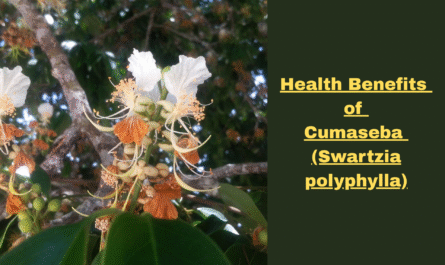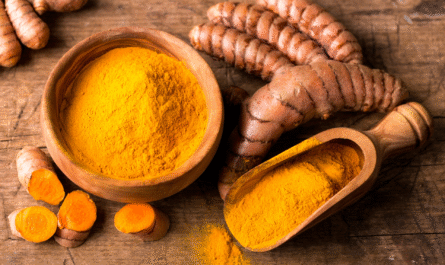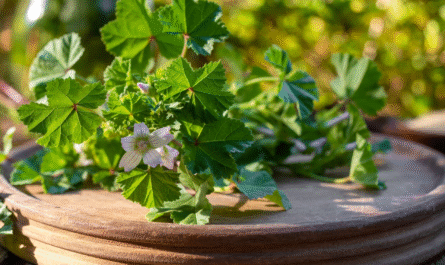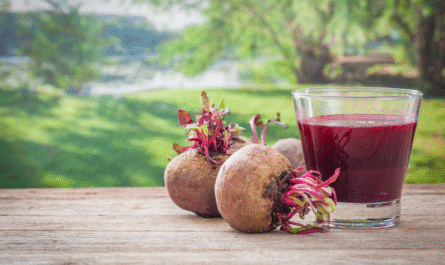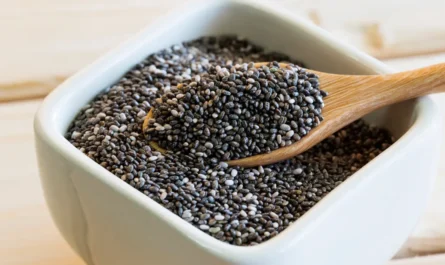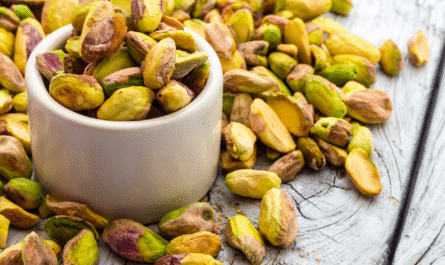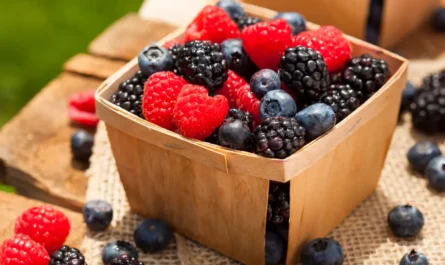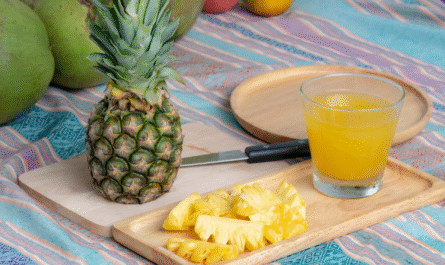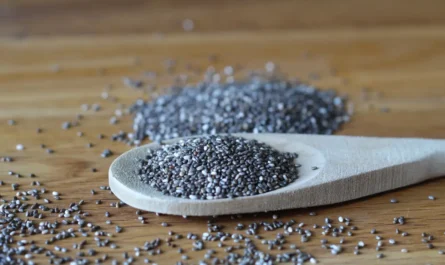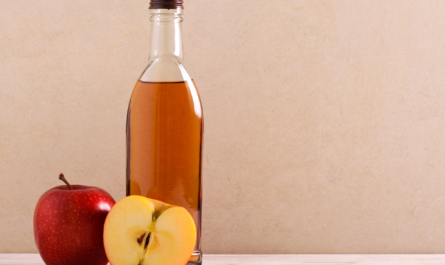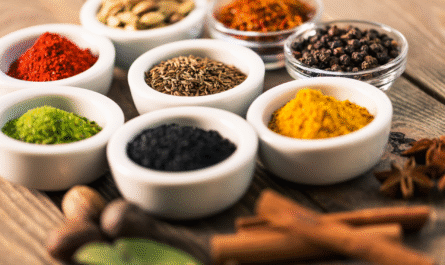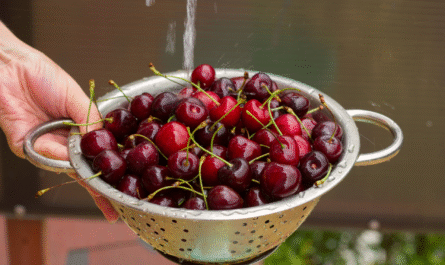Maintaining optimal gut health is essential for overall well-being, as the digestive system plays a pivotal role in nutrient absorption, immune function, and mental health.
The gut microbiome, composed of trillions of microorganisms, thrives on the foods we consume. Incorporating specific foods into your diet can foster a balanced and diverse gut microbiota, improving digestion and health.
Here are seven evidence-based foods that promote better gut health and digestion:
1. Fiber-Rich Foods
Dietary fiber is fundamental for digestive health, serving as nourishment for beneficial gut bacteria and aiding in regular bowel movements.
There are two types of fiber: soluble and insoluble. Soluble fiber dissolves in water to form a gel-like substance, which is fermented by gut bacteria into short-chain fatty acids (SCFAs) like butyrate, propionate, and acetate.
These SCFAs provide energy to colon cells and have anti-inflammatory properties. Insoluble fiber adds bulk to stool and facilitates its passage through the digestive tract, preventing constipation.
A study published in the American Journal of Clinical Nutrition found that individuals consuming a high-fiber diet had a greater abundance of Faecalibacterium prausnitzii, a bacterium known for its anti-inflammatory effects.
Specifically, participants who increased their fiber intake saw a significant rise in this beneficial bacterium, highlighting fiber’s role in modulating gut microbiota composition.
Foods rich in fiber include:
- Whole grains: oats, barley, quinoa
- Legumes: lentils, chickpeas, black beans
- Fruits: apples, pears, berries
- Vegetables: broccoli, carrots, brussels sprouts
- Nuts and seeds: almonds, chia seeds, flaxseeds
The Dietary Guidelines for Americans recommend a daily fiber intake of 25 grams for women and 38 grams for men. However, the average intake falls short, emphasizing the need for increased consumption of fiber-rich foods.
2. Prebiotic Foods
Prebiotics are non-digestible food components that promote the growth and activity of beneficial gut bacteria. They are primarily fibers that ferment in the colon, producing SCFAs that support gut health.
Regular consumption of prebiotics has been associated with increased populations of Bifidobacterium and Lactobacillus, both of which contribute to a healthy gut environment.
Research indicates that diets rich in prebiotics can lead to a significant increase in Bifidobacterium levels. For instance, a study found that participants consuming inulin, a type of prebiotic fiber, experienced a notable rise in this beneficial bacterium, underscoring the importance of prebiotics in fostering a favorable gut microbiome.
Common prebiotic foods include:
- Garlic
- Onions
- Leeks
- Asparagus
- BananasPubMed Central
- Chicory root
- Jerusalem artichokesPubMed Central
Incorporating these foods into your diet can enhance the growth of beneficial bacteria, leading to improved digestion and overall health.
3. Probiotic Foods
Probiotics are live microorganisms that, when consumed in adequate amounts, confer health benefits by enhancing the gut microbiome’s balance.
They can help restore gut flora, especially after disruptions like antibiotic use, and have been shown to alleviate digestive issues such as diarrhea and irritable bowel syndrome (IBS).
A meta-analysis published in the Journal of Clinical Gastroenterology reviewed multiple studies and concluded that probiotic supplementation significantly reduced the duration of antibiotic-associated diarrhea by approximately one day.
This finding highlights the role of probiotics in maintaining gut health during and after antibiotic treatments.
Probiotic-rich foods include:
- Yogurt with live cultures
- Kefir
- Sauerkraut
- KimchiBusiness Insider
- Miso
- Tempeh
- Pickles (fermented in brine)
Regular consumption of these foods can help maintain a balanced gut microbiota, supporting digestive health and immune function.
4. Fermented Foods
Fermented foods undergo a process where natural bacteria feed on the sugar and starch in the food, creating lactic acid.
This process preserves the food and creates beneficial enzymes, B vitamins, omega-3 fatty acids, and various strains of probiotics.
Fermented foods have been linked to improved digestion, enhanced nutrient absorption, and a strengthened immune system.
A study published in the journal Nutrients found that participants who consumed fermented vegetables daily for six weeks experienced significant improvements in their gut microbiome composition.
Specifically, there was an increase in microbial diversity, which is often associated with better gut health.
Examples of fermented foods include:
- Kombucha
- Sourdough bread
- Fermented cheeses
- Natto (fermented soybeans)
- Raw, unfiltered apple cider vinegar
Incorporating a variety of fermented foods into your diet can introduce beneficial bacteria to your gut, promoting a balanced microbiome and improved digestion.
5. Antioxidant-Rich Foods
Antioxidants are compounds that inhibit oxidation, a chemical reaction that can produce free radicals, leading to cell damage.
The gut is particularly susceptible to oxidative stress due to its exposure to harmful compounds, both from diet and internal metabolic processes.
Antioxidant-rich foods can help reduce inflammation and protect gut lining cells from damage. They also support the growth of beneficial bacteria.
A study published in the Journal of Agricultural and Food Chemistry showed that antioxidant-rich diets, particularly those high in polyphenols from fruits and vegetables, promoted a more diverse and stable microbiota.
Polyphenols are plant compounds with potent antioxidant properties, and they’re especially abundant in berries, dark chocolate, green tea, and red wine.
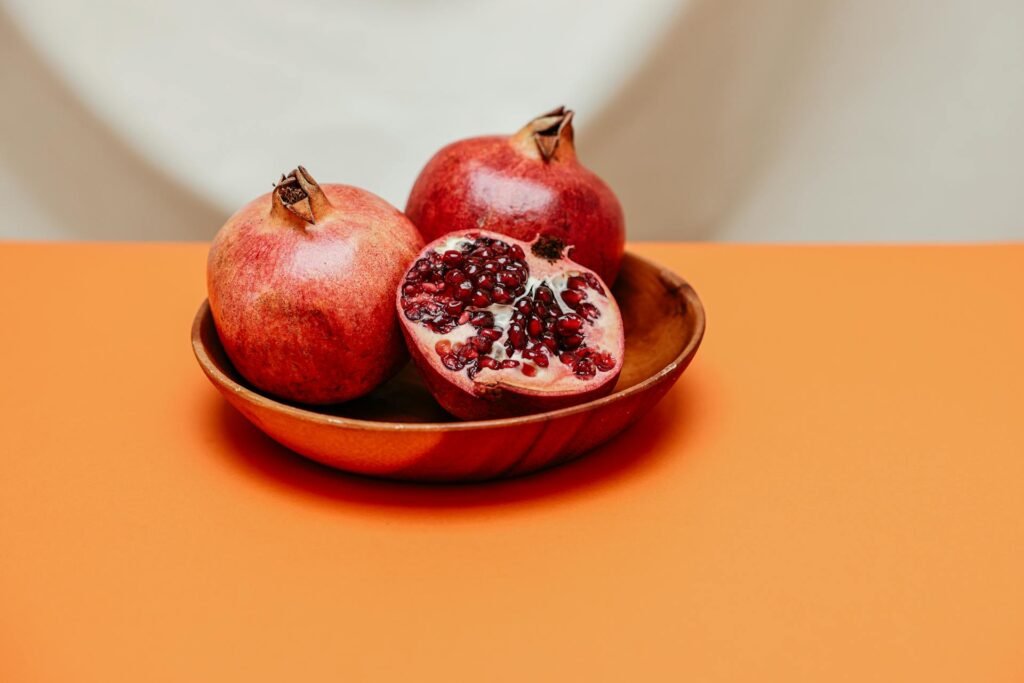
Foods high in antioxidants include:
- Berries (blueberries, raspberries, strawberries)
- Leafy greens (spinach, kale)
- Dark chocolate (at least 70% cocoa)
- Green tea
- Red cabbage
- Pomegranates
- Beets
Vitamin C and E, selenium, and flavonoids found in these foods also help reduce inflammation in the gut.
6. Omega-3 Fatty Acids
Omega-3s are healthy fats found primarily in fatty fish and certain plant sources. They play a crucial role in reducing inflammation throughout the body—including in the gut.
Chronic gut inflammation is associated with conditions like inflammatory bowel disease (IBD), leaky gut syndrome, and metabolic disorders.
Best dietary sources of omega-3s:
- Fatty fish: salmon, mackerel, sardines, trout
- Chia seeds
- Flaxseeds
- Walnuts
- Algal oil (vegan source)
Besides their effect on microbes, omega-3s strengthen the gut lining, reducing the risk of permeability (leaky gut). A strong intestinal lining means better nutrient absorption and fewer digestive issues.
7. Resistant Starch Foods
Resistant starch is a type of carbohydrate that “resists” digestion in the small intestine and ferments in the large intestine. Like fiber, it acts as a prebiotic, feeding the beneficial bacteria and leading to the production of SCFAs, particularly butyrate.
Butyrate is especially important for gut health as it supports the integrity of the gut lining and reduces inflammation.
Common foods rich in resistant starch include:
- Cooked and cooled potatoes
- Green bananas
- Cooked and cooled rice
- Legumes (lentils, black beans)
- Whole grains
- Cashews
The cooling process (like making potato salad) allows starch molecules to reform into a resistant structure that isn’t digested in the small intestine. Including resistant starch in your diet may also improve insulin sensitivity and reduce bloating.
Foods to Limit for Gut Health
While the focus is on gut-friendly foods, it’s equally important to reduce or avoid foods that can harm your microbiota. These include:
- Ultra-processed foods: high in additives, emulsifiers, and preservatives
- Refined sugars: Fuel harmful bacteria and yeast
- Artificial sweeteners: Some (like sucralose and saccharin) may disrupt microbial balance
- Alcohol in excess: can erode the gut lining and alter microbiome composition
- Excess saturated fats: Linked to decreased microbial diversity
Practical Tips for Gut Health
Improving gut health doesn’t require a complete dietary overhaul. Start with small, sustainable changes:
1. Diversify your diet – Aim to eat at least 30 different plant-based foods weekly. Diversity = diversity in microbes.
2. Start your day with fiber – Oats, flaxseeds, or chia puddings are excellent breakfast choices.
3. Swap processed snacks – Replace chips or candy with nuts, fruit, or yogurt.
4. Hydrate – Water supports digestion and nutrient absorption.
5. Introduce fermented foods slowly – Start with small amounts of kefir or kimchi to allow your gut to adjust.
6. Cook and cool starchy foods – Maximize resistant starch benefits.
Final Thoughts
Your gut is more than a digestion machine, it’s a complex ecosystem deeply tied to your immunity, brain, and overall health. By incorporating the right foods—fiber, prebiotics, probiotics, fermented foods, antioxidants, omega-3s, and resistant starch—you can nurture a thriving, balanced gut microbiome.
This balance isn’t just about avoiding bloating or gas; it affects your energy, mood, inflammation levels, and even how your body handles stress.
Backed by research and practical to implement, these seven gut-friendly foods are essential building blocks for long-term digestive health.
So, start today. Mix up your meals. Add fiber, embrace fermented foods, go for color and variety, and let your gut flourish.







